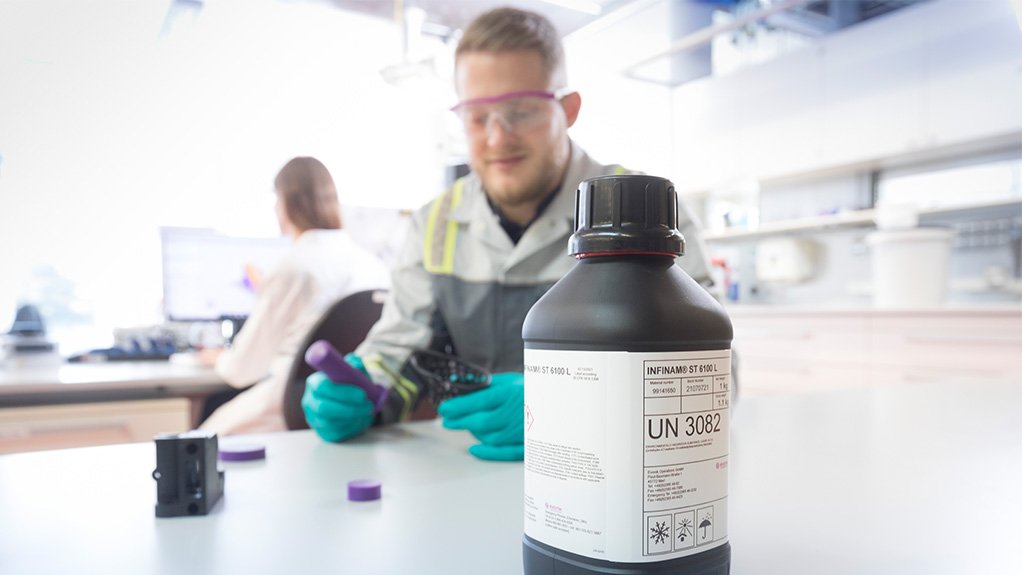Specialty chemicals company Evonik has introduced new powder materials that help reduce the carbon footprint of three-dimensional (3D) printing. The group is aiming to align its INFINAM polyamide 12 (PA12) powders with the goal of achieving an improved overall eco-balance and reduced own carbon dioxide (CO2) emissions, as well as other important sustainability factors such as water consumption and land use.
Evonik’s current materials portfolio is being expanded to include sustainable ready-to-use products, including the introduction of a new grade of PA12 powders that are said to significantly reduce CO2 emissions. These powders will replace the previous INFINAM polyamide 12 materials for all common powder-based 3D technologies such as selective laser sintering, high speed sintering or multi jet fusion.
The new powders are produced using renewable energy at the Marl Chemical Park in Germany. Evonik notes that the associated life cycle assessments have been certified by TÜV Rheinland and that the company's own carbon footprint has improved by almost 50%. In the overall life cycle assessment, the comparison of the new sustainable material grade is said to be positive, even compared to the group’s own castor oil-based Terra range.
"Sustainability is the core element for being successful in the future. That's why we take a holistic view on it at Evonik. Alongside factors such as production efficiency or the reusability of materials, our sustainability approach includes the total life cycle assessments of our materials and their consistent improvement,” says Evonik Additive Manufacturing Innovation Growth Field head Dr Dominic Störkle. “Using green energy and renewable or recycled feedstocks for production, we are able to significantly improve the overall eco-balance of our materials. And we work on end-of-life opportunities for our polymers.”
The group says that it is also working to expand its range of sustainable PA12 powders to include the INFINAM Eco product line, which aligns with the company's goal of avoiding CO2 emissions by using renewable or circular raw materials using the mass balance approach. This method is designed to enable CO2 reduction in existing plants without changing the quality of the products.
Evonik’s 3D printing activities are part of the group’s Additive Manufacturing Innovation Growth Field, which focusses on the development and manufacturing industrial ready-to-use high-performance materials for all major polymer-based 3D printing technologies. The specialty chemicals company aims to drive 3D printing as a large-scale industrial manufacturing technology along the entire value chain.
EMAIL THIS ARTICLE SAVE THIS ARTICLE
To subscribe email subscriptions@creamermedia.co.za or click here
To advertise email advertising@creamermedia.co.za or click here













